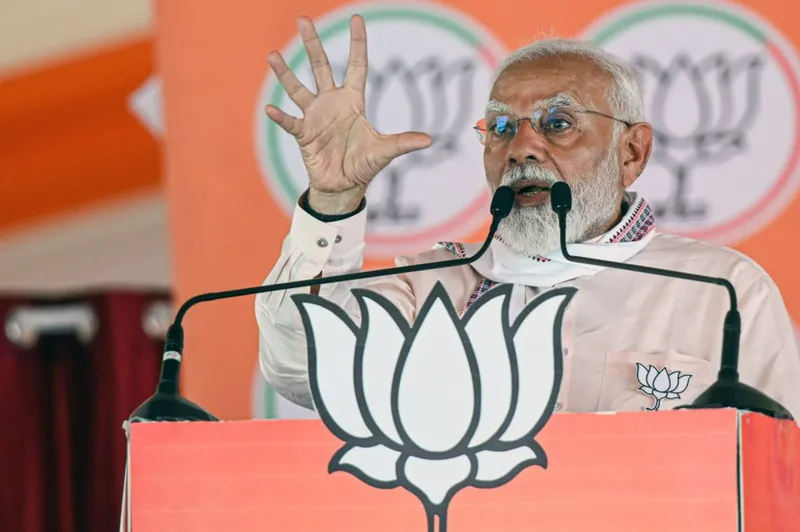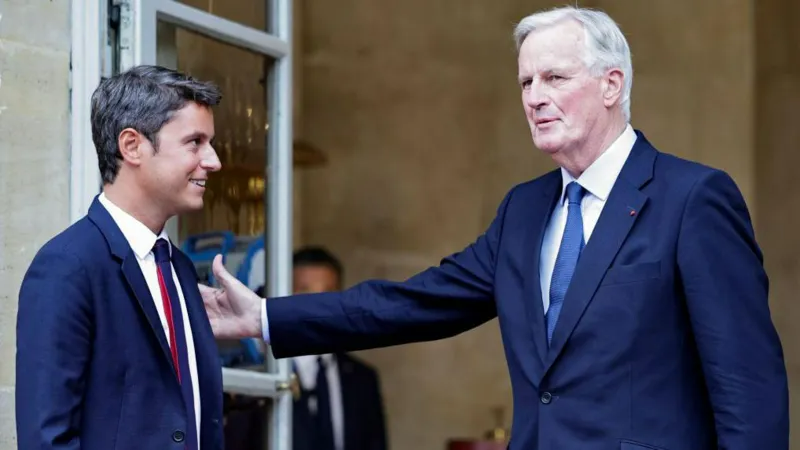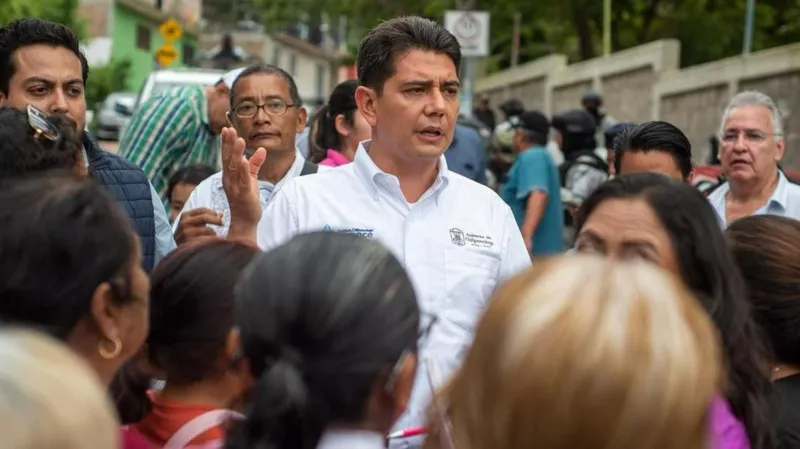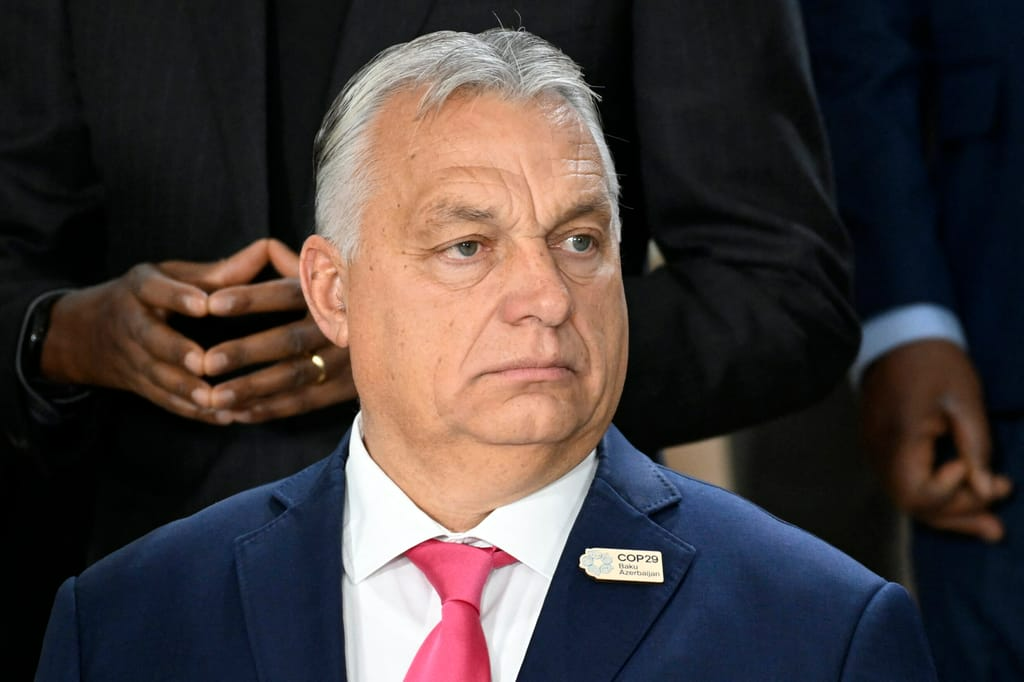In the lead-up to India’s general election, Narendra Modi was expected to frame it as a referendum on his decade as prime minister.
He was expected to boast about achievements like generous welfare programmes and spaceflights. He was to reaffirm that the new Ram temple in Ayodhya represented a cultural assertion for India’s majority Hindus. Even foreign policy was anticipated to influence the ballot, with the publicity boost afforded by Mr Modi’s hosting of the G20 summit last September. Opinion polls have predicted a third, record-equalling landslide win for his Bharatiya Janata Party (BJP).
But early in the gruelling six-week election, Mr Modi’s campaign shifted gears, using divisive rhetoric that has raised questions about his tactics. He’s been accusing the opposition, led by the Congress party, of appeasing the Muslim minority community.
Muslims make up 14% of India’s more than 1.4 billion people. Taking a cue from Mr Modi’s campaign, social media posts by the BJP have, according to the opposition, “demonised” Muslims.
He told a rally on 21 April that the opposition Congress wanted to distribute wealth to “infiltrators” and to “those who have many children”. His remarks were widely seen as referring to Muslims.
At another rally, he warned women that the opposition would confiscate their gold and redistribute it to Muslims. He accused the Congress of orchestrating a “vote jihad”, urging a “certain community” to unite against him. Mr Modi even said the Congress would select the Indian cricket team “on the basis of religion”.

That’s not all. In a recent interview Mr Modi said the “whole world” was trying to influence the elections. This week, Mr Modi blamed the Congress for taking “truckloads” of money from billionaires Mukesh Ambani and Gautam Adani. Congress leader Rahul Gandhi has long spoken about the close ties that Mr Modi shares with the country’s two richest men.
“For the first time you have spoken in public about Adani and Ambani. Is it your personal experience that you know they give money in trucks?” Mr Gandhi responded in a video message. Neither businessman has reacted to the comments.
India’s opposition has also accused Mr Modi of Islamophobia, calling his remarks “divisive, hate speech”. The Congress has demanded an investigation into a potential code of conduct violation. Since the BJP’s rise to power, hate speech against India’s 200 million Muslims has increased. But Mr Modi’s fiery rhetoric on the stump has surprised many, as they expected a focus on highlighting his achievements instead.
“To be honest, I thought Mr Modi’s campaign would be much more about the rising India story, and about what they had done for the people,” says Rahul Verma of the Centre for Policy Research (CPR), a Delhi-based think tank.
Others say Mr Modi’s remarks are not unprecedented. They point to many such instances during his previous election campaigns, including what they call his “inflammatory rhetoric” after the riots in Gujarat in 2002 ahead of the state’s assembly elections. “So, it has not surprised me, but is has shocked me. We often refer to such rhetoric as dog-whistling but there was nothing subtle about the language being employed,” says Milan Vaishnav of Carnegie Endowment for International Peace in Washington.

For one, many say, the BJP might have been spooked by a significant dip in turnout in early rounds of voting amid what has been a rather low energy election. In the previous two elections, won decisively by the BJP, high turnouts benefitted the party – 2014 was largely a vote against the Congress, and 2019 was a vote for Mr Modi.
Second, the opposition has been trying to reshape the narrative of the 2024 election, shifting focus from being solely a referendum on Mr Modi to campaigning on issues like unemployment, social justice and economic inequality.
Political scientist Neelanjan Sircar suggests that the BJP excels in national elections when it focuses on overarching national issues. He told a podcast recently that the party’s not “playing its strongest game” when elections become more regionalised, and local factors come into play.
Mr Modi’s party is targeting 370 seats this time, up from 303 in 2019. However, their rallying cry of “Abki Baar, 400 par” (This time, above 400), aiming for the party and its allies to secure a landslide, might have backfired. The opposition appears to have seized on the slogan, portraying the BJP as a dominating force set to reshape India with a massive majority.
“The opposition is using this slogan to say if they come with such huge majority, the BJP will change the constitution. And the opposition’s narrative to empower poor and lower castes might have got some traction given there are high levels of economic anxiety evident in the pre-poll surveys,” says Mr Verma. “This might have provoked Mr Modi to take this narrative head on and give it a Hindu-Muslim twist.”

Is Mr Modi’s divisive rhetoric a sign of desperation?
Not really, says Mr Vaishnav. “To me, it is designed to mobilise his cadres and perhaps to make up for an underwhelming performance in the first few phases.
“Desperation suggests that the BJP is losing, which I do not believe to be the case. Meeting the new target of 400 seats will be difficult unless the BJP can retain its seats from 2019 as well as expand into new areas.”
Despite Mr Modi’s rhetoric on the stump, he has sung a different tune in recent interviews with news networks.
“I am not anti-Islam, nor am I anti-Muslim,” he told Times Now.
He said his government’s welfare benefits extended to all, irrespective of their community or religion, adding that “social justice and secularism is a guarantee from Modi”.
Mr Modi criticised the opposition for using Muslims as political pawns and suggested that the community should reflect on its own situation. “Muslims should introspect why there’s a sense of shortcomings within the community.” He said the Muslim community was changing all over the world. “When I go to the Gulf countries, India and I get so much respect. Here there’s opposition,” he said.
Unravelling the complexity behind election victories in India is always a challenge. Gilles Verniers, a political scientist, believes they are rarely fought and won based on past accomplishments.
“Voters instead determine their choice according to what parties and candidates offer for the future. After building its past campaigns on welfare, security and nationalism, and having scored on these matters, the BJP does not have a lot of new ideas to offer to voters, hence the exacerbation of ethnic and religious nationalism,” he says.
Mr Modi and his party will disagree. But one thing is evident: this election has not yet manifested itself as a sweeping wave favouring any side, regardless of which party stands to gain or lose from it. “In politics,” says political analyst Pratap Bhanu Mehta, “never underestimate the power of boredom“. That could account for what many say is the BJP’s “nervousness”.



